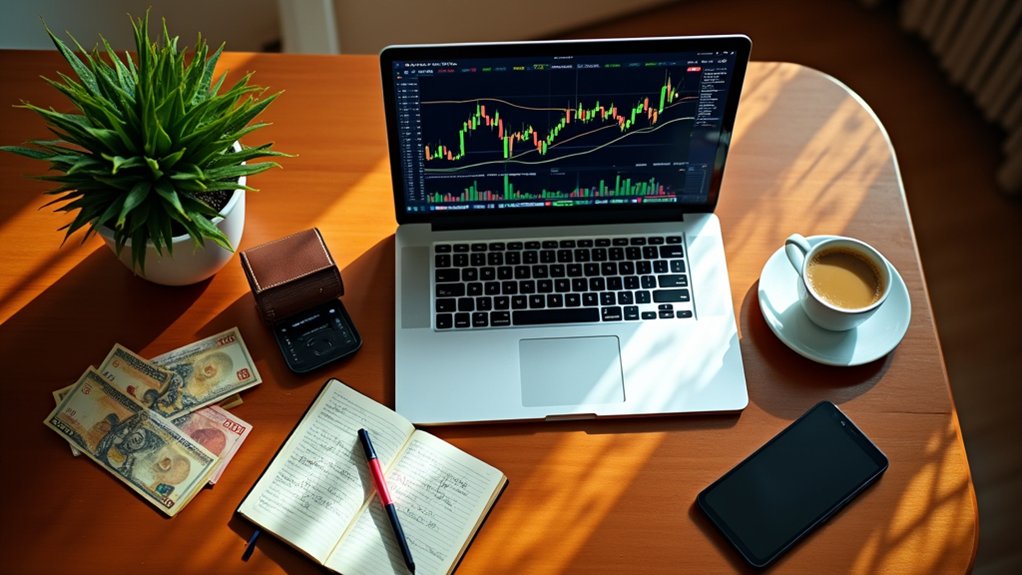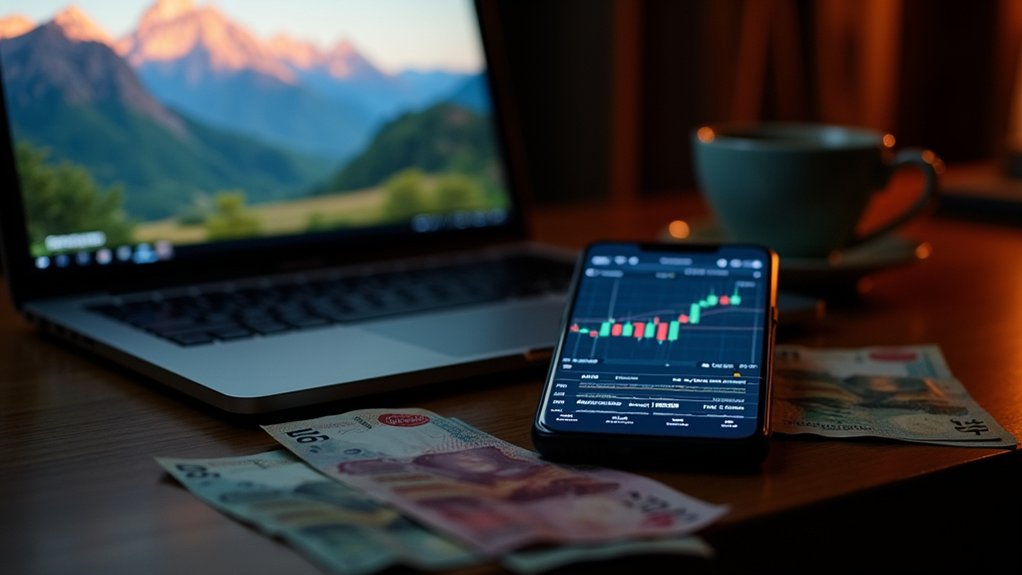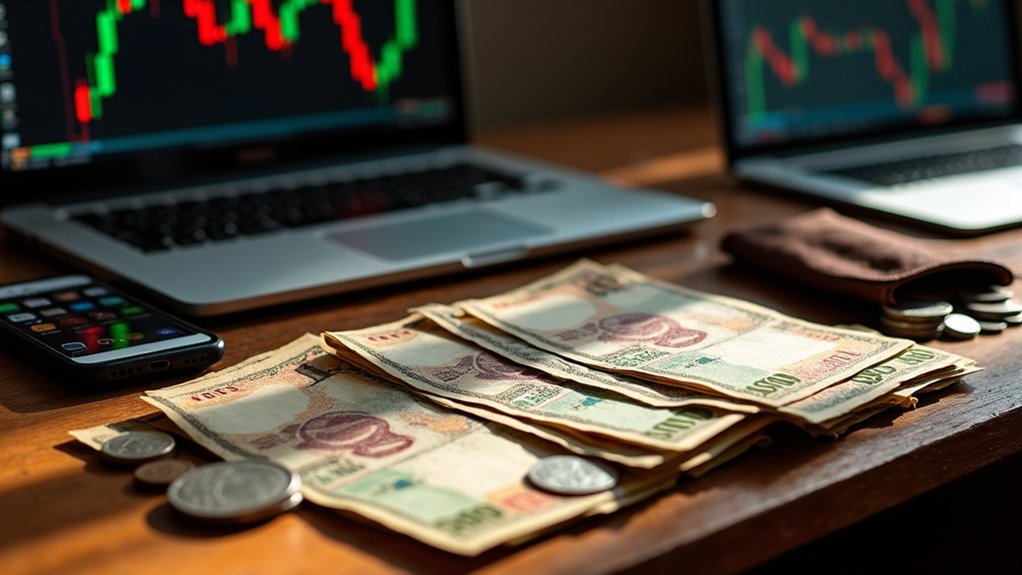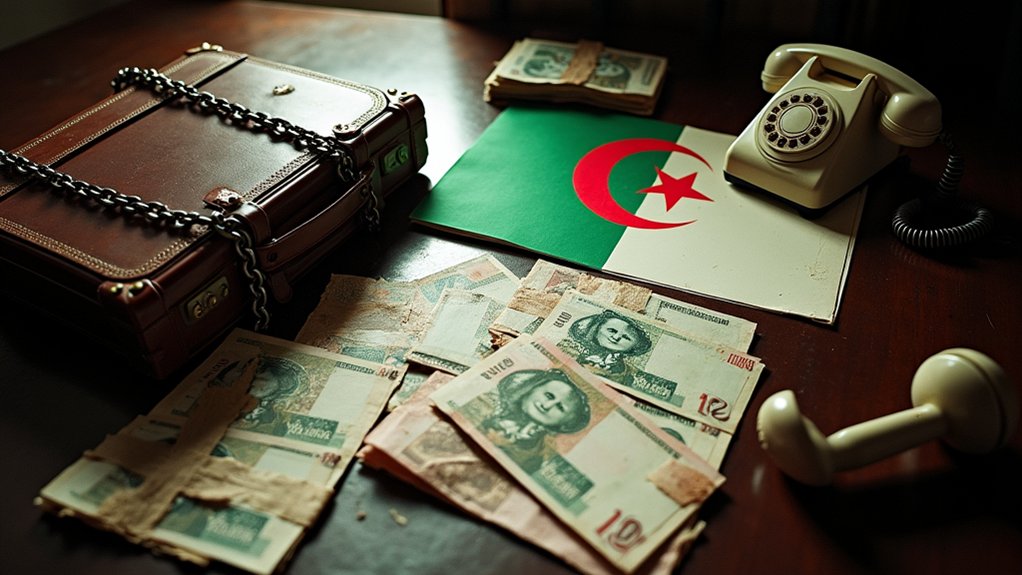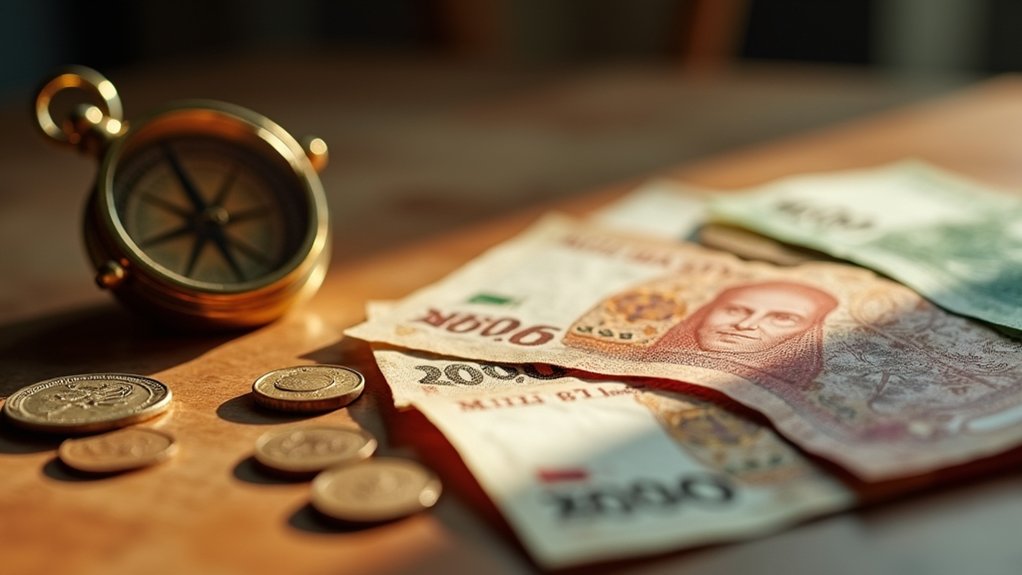Forex trading is legal in Senegal, but no one in Senegal actually regulates it—so the whole market runs on international offshore brokers, opaque payment channels, and whatever protection foreign watchdogs like the FCA or CySEC might offer from thousands of miles away. Traders pick brokers based on foreign licenses, fund accounts through a patchwork of bank wires and e-wallets, and navigate a regulatory gray zone shaped by BCEAO currency controls and recent WAEMU rules that tighten foreign-exchange flows without licensing a single retail platform—which leaves plenty of room for scams, blocked withdrawals, and confusion over what happens when profits need to come home.
Quick Facts That Matter
- Forex trading is legal in Senegal but unregulated domestically; traders access international brokers in a regulatory gray zone.
- No local licensing exists; traders rely on foreign regulators like FCA, ASIC, or CySEC to vet broker legitimacy.
- Trading focuses on CFA franc pairs with typical 30:1 leverage; peak liquidity occurs during London-New York overlap hours.
- Funding via bank wire or e-wallets faces practical hurdles; cooperation between local banks and offshore brokers remains unclear.
- Repatriating profits triggers strict BCEAO controls, tax obligations, and periodic reporting requirements under new 2025 instructions.
Overview: Forex Trading in Senegal
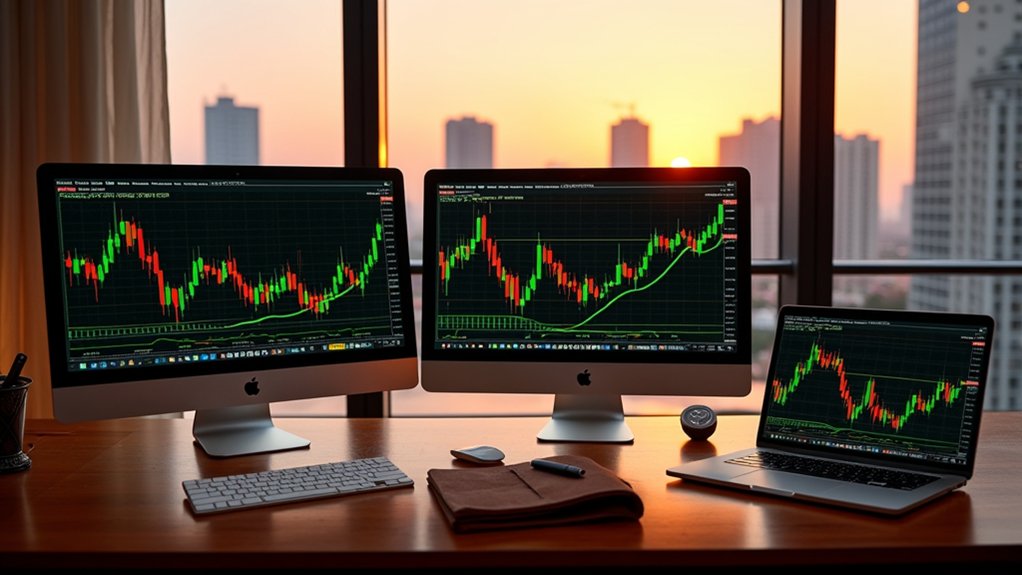
Over the past few years, forex trading has exploded in Senegal. What was once the playground of major financial centers is now attracting a wave of traders from West Africa.
Forex trading has surged across Senegal, transforming West Africa into an emerging powerhouse for currency market participation.
Senegal has positioned itself as a hub for financial innovation, with both individual and institutional participants diving into currency markets. The country's economic fundamentals help.
Robust growth, political stability, and a strategic coastal location make it an attractive destination for investment. Mining, construction, tourism, fishing, and agriculture drive the economy.
The government is targeting 5.675 trillion XOF in private investment for priority sectors. That's substantial capital.
Companies like Wealthway FX are providing trading platforms and educational resources, making market entry easier than ever before. Traders must understand the legal framework governing their forex activities to ensure compliance with local regulations. However, fifteen new instructions published by BCEAO on August 1, 2025, now regulate financial and commercial operations between UEMOA countries and the rest of the world, fundamentally reshaping the forex landscape.
Is Forex Trading Legal in Senegal?

Yes, forex trading is legal in Senegal. No laws prohibit residents from opening accounts with international brokers and trading currency pairs. It's permitted within the WAEMU framework.
But here's the catch: there's no dedicated forex regulator watching over brokers. BCEAO doesn't license or oversee forex firms. No domestic registration requirements exist. The market operates in a regulatory gray zone.
Traders rely entirely on international broker regulation—FCA from the UK, ASIC from Australia, CySEC from Cyprus. These foreign regulators set the standards. Senegalese authorities don't intervene. Broker licensing status serves as the primary indicator of legitimacy when evaluating platform safety.
Exchange controls exist under WAEMU Regulation 06/2024/CM/UEMOA and the 2014 Customs Code. Within the CFA franc zone, BCEAO manages monetary policy while CREPMF oversees securities markets, but neither directly regulates retail forex trading. A new banking law (No. 2025-03) replaced the 2008 framework in February 2025. Legal? Yes. Regulated locally? Not really.
Who Regulates Forex Trading in Senegal?
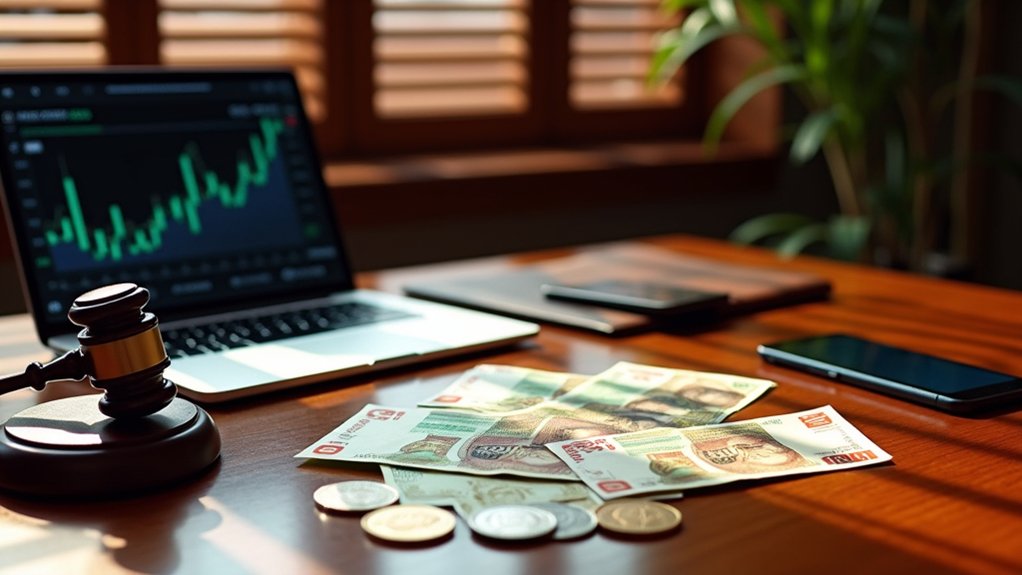
Who's actually in charge of forex trading in Senegal? That would be BCEAO—the Central Bank of West African States. They manage foreign exchange activities across the WAEMU zone, covering banks and pension funds.
But here's the thing: BCEAO doesn't actually license forex brokers. Not yet, anyway. Law No. 2025-03 strengthened their authority over official reserves and monetary policy, but retail forex? Still a gray area.
The broader framework comes from UEMOA, which sets exchange controls and transfer limitations across member states. Similar to how the South African Reserve Bank uses exchange controls to manage cross-border capital flows, BCEAO oversees currency movement within the franc zone. Recent banking reforms expanded regulatory coverage to fintech and payment institutions. Member states are required to centralize reserves on the BCEAO's books to support monetary stability and the CFA franc parity.
How Forex Trading Works in Senegal
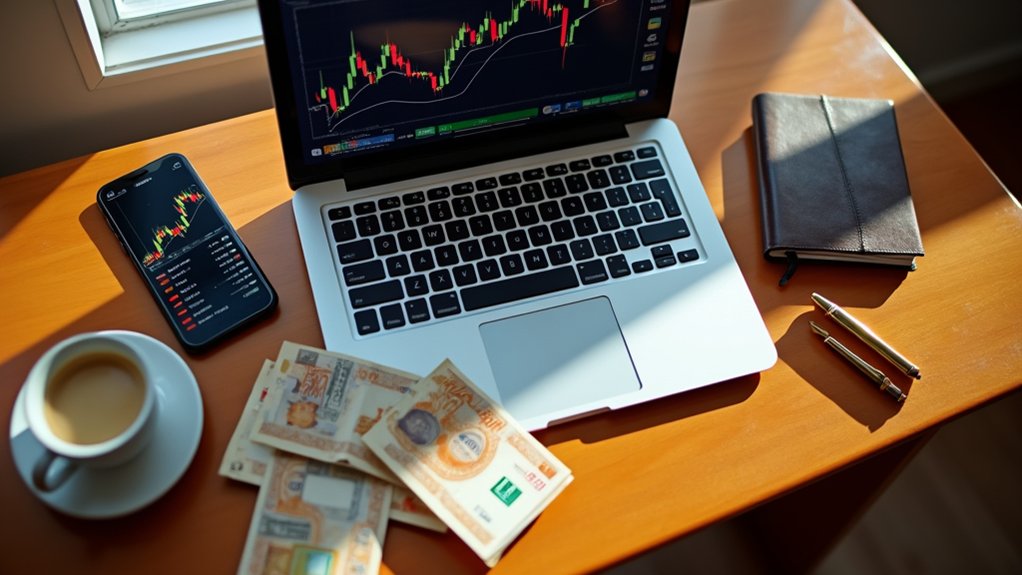
Retail forex in Senegal runs on international brokers, the CFA franc, and a banking system shared across eight countries.
Senegal's forex market: eight-nation currency, zero local oversight, international platforms doing all the heavy lifting.
Traders access over 40 currency pairs through offshore platforms—MT4, MT5, broker apps.
USD/XOF is the big one.
Rate example: 549.86/96.
The CFA (now eco, still pegged to the Euro) converts freely through commercial banks.
No Ministry authorization needed since 1998.
Leverage? Typically 30:1.
That means $833.33 controls a $25,000 position.
A 20-pip move swings roughly 5,000 XOF.
CFDs let traders speculate without touching actual currency.
Binary options exist for the adventurous.
Funding comes via bank wire, e-wallets, fintech apps, debit cards.
Twenty-six registered banks operate locally.
Foreign names include UBA, Ecobank, Attijari, Bank of Africa.
Most offshore brokers use a no dealing desk model, routing orders directly to liquidity providers rather than taking the opposite side of trades.
The catch? No local broker regulation exists.
Foreign investments require a posteriori declaration to the Directorate in Charge of External Finance and BCEAO within one month of execution.
Gap wide open.
Best Time to Trade from Senegal
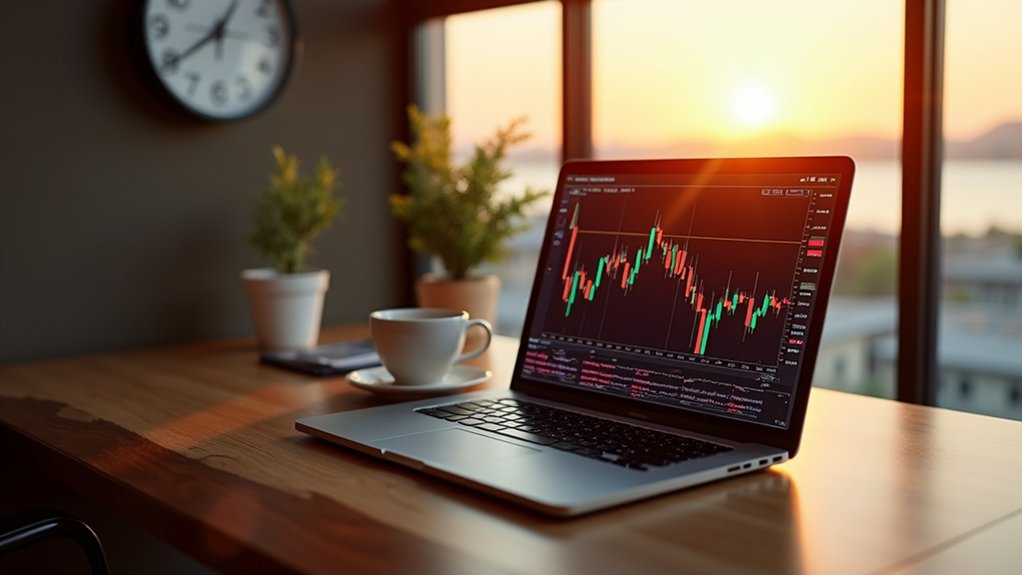
Timing matters in forex—more than most traders in Senegal realize. The London-New York overlap runs from 12:00 PM to 4:00 PM Senegal time. That's when liquidity peaks. Price movements average 70+ pips during overlaps versus 30 pips when only one session operates. Major US and European news hits during this window, and the WM/Reuters benchmark rates get fixed at 4:00 PM UTC. There's also a Tokyo-London overlap from 7:00 AM to 8:00 AM—shorter, but JPY-EUR pairs move.
Single-session periods? Less action. The New York-only stretch from 8:00 PM to midnight shows reduced volatility. Sydney-Tokyo overlap brings minimal volume outside Asia. Weekend? Markets close. No trading Saturday or Sunday. USD, EUR, and GBP pairs see the most activity during that London-New York window. Higher liquidity during these peak periods yields tighter spreads and better execution for your trades. Understanding how volatility varies across different sessions helps you identify which hours offer the most trading opportunities versus when to stay on the sidelines.
Payments, Deposits and Withdrawals in Senegal
Senegalese traders face a payment infrastructure puzzle that London or New York traders never think about. The specific mechanics—how much, through which channels, what fees—remain frustratingly opaque in available sources. Documentation on deposit methods is thin. Withdrawal procedures? Unclear. Minimum transaction amounts? Unknown. Maximum limits? Same story.
What's documented is the regulatory framework. What's missing is the practical detail: Can traders use mobile money? Which banks cooperate with international brokers? Do e-wallets work reliably? The gap between regulation on paper and payment reality on the ground appears significant.
This information vacuum doesn't mean forex trading is impossible in Senegal. It means traders navigate without a clear map. They figure it out broker by broker, transaction by transaction. Authorized foreign exchange intermediaries must verify identities and transaction documentation before processing international transfers. Brokers typically require KYC documentation from traders before allowing deposits or withdrawals, adding another layer to the payment process. Trial and error becomes the instruction manual.
Taxes, Reporting and Money Rules in Senegal
When a trader in Dakar closes a profitable EUR/USD position, three questions land immediately: Does the tax authority want a cut? Must the broker report it? Can winnings leave the country without a bureaucratic meltdown?
Senegal's regulatory stack—Regulation 06/2024/CM/UEMOA, Law No. 2025-03, a handful of fresh 2025 instructions—says yes, maybe, and not easily.
Instruction No. 15-07-2025-RFE forces authorized intermediaries to file periodic reports in a harmonized format. Miss the deadline? Trouble.
Instruction No. 14-07-2025-REF governs physical currency export: declaration, authorization, justification. Want to fly out with cash? Paperwork first.
Instruction No. 13-07-2025 lists every document required for exchange, investment, transfer operations.
The BCEAO now centralizes member-state reserves under Law No. 2025-03, tightening its grip on foreign exchange flows.
Like Ghana's central bank deploys monetary policy tools to defend the cedi, the BCEAO monitors interventions to keep the CFA franc anchored—yet Senegal's traders face stricter repatriation hurdles than their Anglophone peers.
Forex Trading Scams and Risks in Senegal
Daily, a trader in Dakar opens an account with a broker promising zero spreads, instant withdrawals, and an Emirati license nobody can verify. The website looks professional. Customer service responds quickly. Then withdrawal requests vanish into silence.
Fake brokers forge regulatory documents. They claim oversight from obscure agencies nobody's heard of. Signal sellers promise consistent profits from “insider knowledge” or algorithms—usually random data generating losses while subscription fees disappear.
COVID-19 accelerated cybercrime infrastructure in Dakar. Nigerian groups maintain operational presence. Criminals use VPNs for unauthorized financial activities. Phishing and skimming remain common.
Multi-accounting fraud exploits detection gaps. Account takeovers target digital wallets and credit cards. Inadequate infrastructure lets suspended operations continue. Bonus abuse schemes create fake accounts to exploit promotional offers, draining broker resources while facilitating money laundering. When traders face blocked withdrawals, they should document all communication with the broker, file complaints with regulatory authorities, and consider legal remedies to recover their funds.
The informal sector dominates. Corrupt officials facilitate illicit operations. Billionaires hide assets offshore while fraud costs hundreds of millions annually.
Quick Q and A
Can I Trade Forex in Senegal Using Mobile Money Like Orange Money?
Most international forex brokers do not directly accept Orange Money for deposits or withdrawals. Traders in Senegal typically use bank transfers, international e-wallets, or credit cards instead. Local mobile money platforms lack integration with mainstream forex trading platforms currently.
Do Senegalese Brokers Offer Better Spreads Than International Offshore Brokers?
No Senegalese-regulated brokers currently operate locally. International offshore brokers like Hantec Markets, Exness, and Fusion Markets offer competitive spreads from $0-3.50 per lot, dominating the market with established platforms and lower fee structures than potential local alternatives.
What Happens if My International Broker Goes Bankrupt or Closes?
Segregated accounts should protect client funds during bankruptcy, but regulatory oversight has limitations. Recovery timelines span months through liquidation processes. Protection amounts vary by jurisdiction—SIPC covers $500,000 in US cases, though fraud can compromise safeguards.
Can I Open a Forex Account if I'm Under 18?
Most international forex brokers require clients to be at least 18 years old due to legal contract requirements. Minors in Senegal typically cannot open accounts independently, though some jurisdictions allow custodial accounts with parental consent.
Are Forex Trading Profits Considered Halal Under Islamic Finance Rules?
Forex trading profits can be halal if conducted through swap-free accounts with immediate settlement, no interest payments, reasonable leverage, and genuine economic purpose. However, interest-bearing positions, excessive speculation, and unethical practices render profits haram under Islamic finance principles.
The Bottom Line
Forex trading in Senegal exists in a gray zone—legal but barely regulated, accessible yet risky. Traders can open accounts and chase pips, but they're mostly on their own. The CFA franc adds complications. Offshore brokers dominate because local infrastructure doesn't exist. Scams lurk everywhere. Tax rules? Unclear. Capital controls? Real. It works, technically, but calling it a well-functioning system would be generous. Senegalese traders participate at their own risk, steering a landscape with few guardrails.
